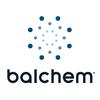The Impact of Heat Stress on Immune Status of Dairy Cows
Published: March 16, 2023
Summary
Heat stress (HS) is well known to negatively influence dairy cow’s wellbeing, health and productivity. Heat stress is a multi-billion-dollar global problem. It impairs cow’s performance during summer when cows are exposed to high ambient temperatures, direct and indirect solar radiations, and high humidity. While significant developments have been achieved over the last few decades to...
Related topics:
Authors:
Recommend
Comment
Share
27 de marzo de 2023
Thanks dr. Flamenbaum for highliting different critical area effected due to HS
Impact on cow production ,reproduction ,general health ,udder health and milk very well explained
Recommend
Reply

13 de junio de 2023
Dear Flamenbaum,
Thank you for the valuable information you have provided.
What do you think about the effect of heat stress on the formation of foot diseases in high-yielding cows?
Thanks.
Recommend
Reply
14 de junio de 2023
celal izci The reduction in immune system negatively affects also foot. In addition, cows standing more time due to being heat stressed suffer more from foot problems.
Recommend
Reply
12 de marzo de 2024
Excellent!
You habe to study slick cows. Tey are thermotolerant due to very shirt hair and double amount of sweating capacity. They need only ventilation!
They stabilise thei vaginal or rectsl ir rumen temperature under 38.7 degrees Celsius!
There are nowaday Red Holsteinnand Holstein Slick bulls available through Semex International/Swissgenetics line
Ja-Bob Thermo Red Pp Slick or SSI Conway Chip Slick at Selectsires!
They need still Ventilators and fresh air. Do not be afraid to loose your business with cooling!
Good environment, management and genetics have to go Hand in Hand!
Mr. Flamenbaum, you have convinced me, that You are the one and only person in the world to explain it to the big Milkproducers!!
More efficiency means more profit for farmers, less feed waste, less costs for vets and medicine, less cullings, les replacers, more animal wellfare, smaller footorint of milk and meat production, better image of milk and meat, smaller losses of marketshares to animal-free products!
Hope to get some fedback of you.
I could introduce you to the development of Holstein cows with 98 Percent Holstein blood with the slick gene from the carribean cattle Senepol, bred by three generations of the family Laeaetz on the virgin Islands and then introduced to Holstein In Puerto Rico by Rafy Lopez and in Florida by the Dairy unit at the University of Florida (Prof. Olsen and Hansen)
Regards
Rudolf Haudenschild, Switzerland
You habe to study slick cows. Tey are thermotolerant due to very shirt hair and double amount of sweating capacity. They need only ventilation!
They stabilise thei vaginal or rectsl ir rumen temperature under 38.7 degrees Celsius!
There are nowaday Red Holsteinnand Holstein Slick bulls available through Semex International/Swissgenetics line
Ja-Bob Thermo Red Pp Slick or SSI Conway Chip Slick at Selectsires!
They need still Ventilators and fresh air. Do not be afraid to loose your business with cooling!
Good environment, management and genetics have to go Hand in Hand!
Mr. Flamenbaum, you have convinced me, that You are the one and only person in the world to explain it to the big Milkproducers!!
More efficiency means more profit for farmers, less feed waste, less costs for vets and medicine, less cullings, les replacers, more animal wellfare, smaller footorint of milk and meat production, better image of milk and meat, smaller losses of marketshares to animal-free products!
Hope to get some fedback of you.
I could introduce you to the development of Holstein cows with 98 Percent Holstein blood with the slick gene from the carribean cattle Senepol, bred by three generations of the family Laeaetz on the virgin Islands and then introduced to Holstein In Puerto Rico by Rafy Lopez and in Florida by the Dairy unit at the University of Florida (Prof. Olsen and Hansen)
Regards
Rudolf Haudenschild, Switzerland
Recommend
Reply
.jpg&w=3840&q=75)

Benefits of Mitigating Heat Stress in Dairy Cows - Dr. Lance Baumgard, Iowa State University
Suggested link
1

Would you like to discuss another topic? Create a new post to engage with experts in the community.










